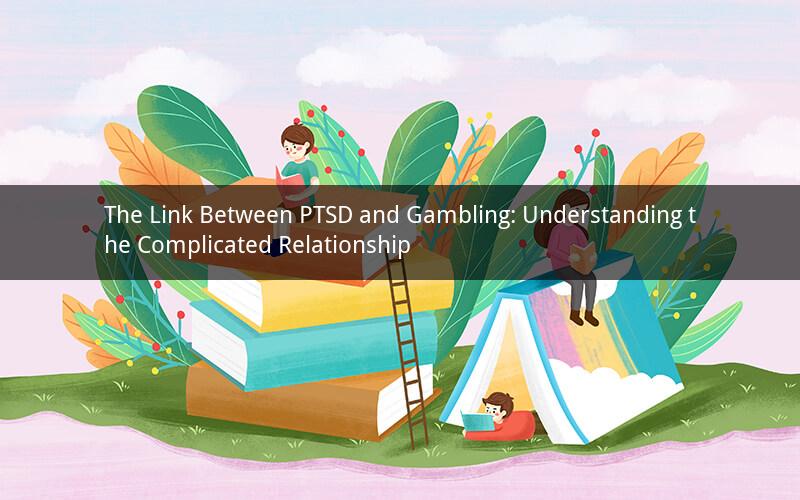
Introduction:
Post-traumatic stress disorder (PTSD) is a mental health condition that can develop after experiencing or witnessing a traumatic event. It is a condition that affects millions of people worldwide, and its symptoms can vary greatly from person to person. One of the symptoms that some individuals with PTSD may experience is an increased likelihood of developing a gambling addiction. This article delves into the connection between PTSD and gambling, exploring the reasons behind this relationship and the potential consequences.
Section 1: Understanding PTSD
Post-traumatic stress disorder is characterized by symptoms such as flashbacks, nightmares, intense anxiety, and an exaggerated startle response. These symptoms can be triggered by various traumatic events, including combat, sexual assault, or natural disasters. While the exact cause of PTSD is unknown, it is believed to be a combination of genetic, environmental, and psychological factors.
Section 2: The Complicated Relationship Between PTSD and Gambling
1. Coping Mechanism: For some individuals with PTSD, gambling can serve as a coping mechanism to deal with the emotional pain and distress caused by the traumatic event. It provides a sense of excitement and control, which can be a temporary escape from the negative emotions associated with PTSD.
2. Impulse Control: Individuals with PTSD may experience difficulties in controlling their impulses, which can lead to an increased likelihood of developing a gambling addiction. The thrill of winning and the desire to chase losses can create a cycle of problem gambling.
3. Brain Chemistry: Studies have shown that individuals with PTSD may have altered brain chemistry, particularly in the areas responsible for reward and decision-making. This alteration can make them more susceptible to the allure of gambling.
Section 3: The Risks and Consequences of Problem Gambling
1. Financial: Problem gambling can lead to significant financial consequences, including debt, bankruptcy, and loss of savings. This can have a detrimental impact on the individual's overall well-being and relationships.
2. Relationships: Problem gambling can strain relationships with family and friends, as the individual may become preoccupied with gambling and neglect their responsibilities. This can lead to feelings of guilt, shame, and isolation.
3. Legal: Problem gambling can result in legal consequences, such as arrest, fines, or even imprisonment. This can further exacerbate the individual's stress and anxiety, potentially worsening their PTSD symptoms.
4. Mental Health: Problem gambling can exacerbate the symptoms of PTSD, leading to a vicious cycle of mental health issues. The stress and anxiety associated with problem gambling can make it difficult for individuals to manage their PTSD symptoms effectively.
Section 4: Treatment and Support
1. Therapy: Cognitive-behavioral therapy (CBT) has been shown to be effective in treating both PTSD and problem gambling. CBT helps individuals develop healthier coping mechanisms and improve their decision-making skills.
2. Support Groups: Joining a support group, such as Gamblers Anonymous, can provide individuals with a sense of community and understanding. They can share their experiences and learn from others who have faced similar challenges.
3. Professional Help: Seeking the assistance of a mental health professional, such as a psychologist or counselor, can provide individuals with personalized support and guidance in managing their PTSD and problem gambling.
Section 5: Conclusion
The connection between PTSD and gambling is a complex issue that requires attention and understanding. While gambling may seem like a harmless form of entertainment, for some individuals with PTSD, it can be a dangerous coping mechanism that leads to addiction and further mental health issues. By recognizing the signs of problem gambling and seeking appropriate treatment and support, individuals with PTSD can improve their quality of life and break free from the cycle of addiction.
Questions and Answers:
1. Q: Can PTSD cause gambling addiction?
A: Yes, PTSD can increase an individual's susceptibility to developing a gambling addiction. The stress and anxiety associated with PTSD may lead to the use of gambling as a coping mechanism, which can eventually turn into an addiction.
2. Q: What are the symptoms of PTSD?
A: Symptoms of PTSD include flashbacks, nightmares, intense anxiety, an exaggerated startle response, and feelings of guilt or shame. These symptoms can vary in intensity and duration from person to person.
3. Q: How can cognitive-behavioral therapy (CBT) help individuals with PTSD and problem gambling?
A: CBT helps individuals develop healthier coping mechanisms and improve their decision-making skills. It can help them recognize and challenge negative thoughts and behaviors, leading to better management of PTSD and problem gambling.
4. Q: Are there any support groups available for individuals with PTSD and problem gambling?
A: Yes, there are support groups available for individuals with PTSD and problem gambling, such as Gamblers Anonymous. These groups provide a sense of community and understanding, allowing individuals to share their experiences and learn from others.
5. Q: How can family and friends support someone with PTSD and problem gambling?
A: Family and friends can support someone with PTSD and problem gambling by being understanding, patient, and non-judgmental. They can encourage the individual to seek professional help and provide a supportive environment for them to recover.